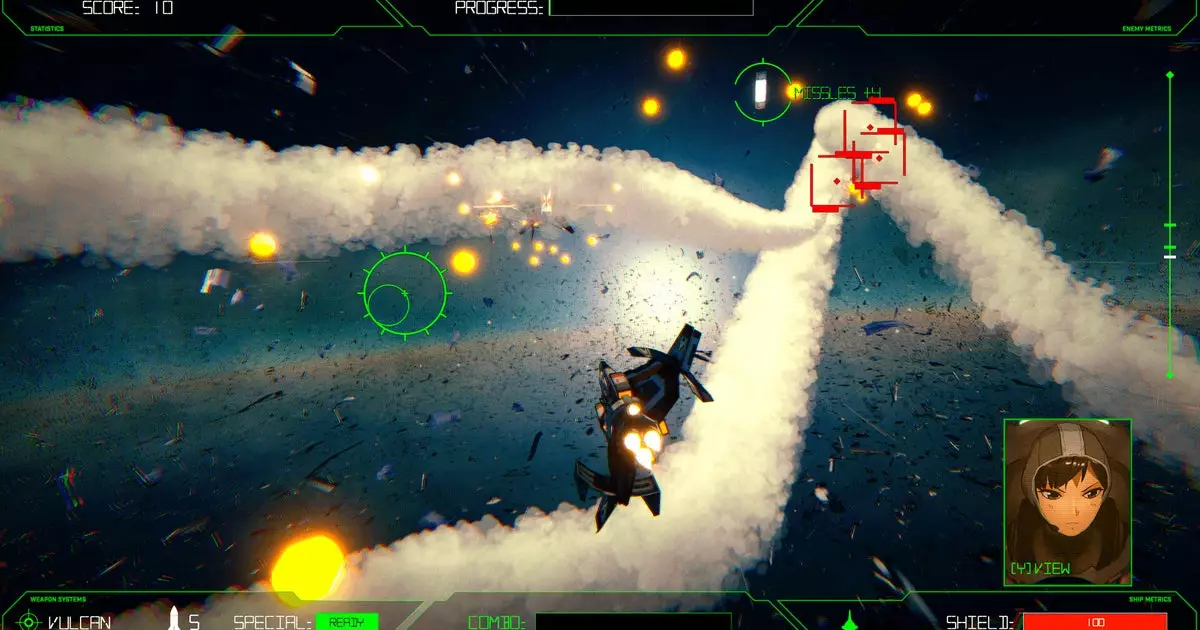Rogue Flight positions itself as an intriguing addition to the arcane genre of space combat games, drawing significant inspiration from iconic titles that defined the genre in the late 20th century. It offers an engaging combination of fast-paced gameplay and an elaborate storyline, reminiscent of classics that once enchanted gamers. Set to be released later this year, it signals a fresh plunge into interstellar warfare that pays homage to the visual styles and thematic elements of revered ’80s and ’90s anime. The title aims to capture the nostalgic essence of these eras while integrating modern gameplay mechanics that cater to today’s players.
The gameplay promises a thrilling experience as players will have the ability to maneuver their spacecraft through intense dogfights across nine distinct stages. The mechanics allow for impressive acrobatics, a feature that enhances the fluidity and excitement of space battles. The mention of a branching narrative path suggests that players’ choices will have significant consequences, mimicking the style of classic role-playing games while integrating a sense of urgency and strategic depth typically associated with roguelike elements. The optional roguelite mode introduces a layer of permanence to death, heightening the stakes for players as they navigate their battles.
Rogue Flight’s marketing strategy centers around its impressive voice cast, featuring talents who have prominently contributed to beloved anime series such as Sailor Moon and Neon Genesis Evangelion. This casting choice aims to entice fans of anime, though it might alienate those who prefer English voice acting due to personal taste. Nonetheless, the presence of experienced voice actors, whether in their original Japanese or dubbed English versions, assures potential players that the character portrayals will be compelling and engaging.
Visually, Rogue Flight is set to attract audiences with its mix of bold designs and hyper-stylized aesthetics. The marketing emphasizes flashy graphics and a rock-inspired soundtrack that should amp up the adrenaline during gameplay. However, while this vibrant representation can be exhilarating, there is a risk that it may overshadow deeper, more substantive themes. The juxtaposition of internal struggles against the backdrop of chaotic space battles could provide a rich narrative experience, one that resonates on a psychological level.
At its core, Rogue Flight embodies the captivating contrast found in many anime narratives: the portrayal of flawed protagonists grappling with external conflicts while wrestling with profound emotional turmoil. The idea of piloting a space vessel—an extension of one’s inner chaos—invites players to confront their vulnerabilities. The existential questions posed through powerful mechs and spaceships allow for a cathartic gaming experience where confronting personal demons becomes woven into the game’s thrilling narrative arc.
Rogue Flight presents itself not only as a game but as a multi-dimensional experience that intertwines aesthetics, emotional resonance, and engaging gameplay mechanics. As the release date draws near, anticipation grows for a title that promises to both captivate and challenge its audience on multiple levels.


Leave a Reply